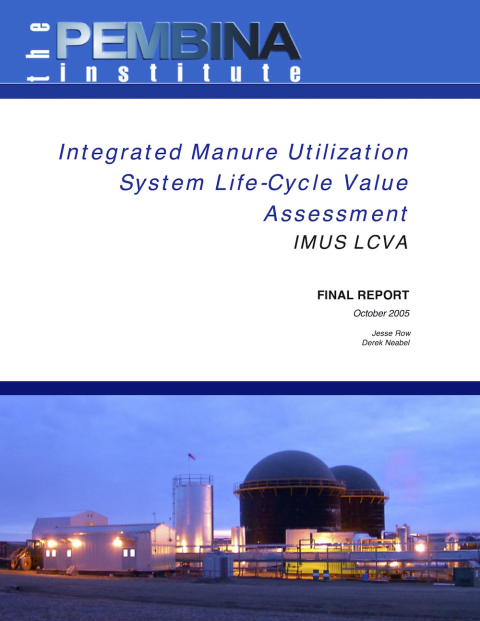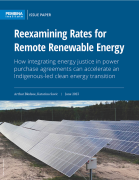The Pembina Institute, in collaboration with the Alberta Research Council and Highmark Renewables, completed a Life-Cycle Value Assessment (LCVA) of an emerging technology to convert cattle manure into electricity, heat, biofertilizer and reusable water: the Integrated Manure Utilization System (IMUS). The results of the study demonstrate the significant potential for this technology to improve the triple-bottom-line performance of intensive livestock operations, while also highlighting many of the challenges faced by further commercialization. The study assessed the economic, environmental and social sustainability of the technology, focusing on the life-cycle greenhouse gas (GHG) emissions and the potential return on investment. Several other impacts on the local community and the environment were also assessed.
Integrated Manure Utilization System Life-Cycle Value Assessment
October 1, 2005
Publication

Tags:
Related Research & Analysis

Electricity, Remote Communities
June 7, 2023
Publication
Reexamining Rates for Remote Renewable Energy
How integrating energy justice in power purchase agreements can accelerate an Indigenous-led clean energy transition
Programs
Leading the transition to clean energy requires advancing solutions to today’s energy challenges from various angles.
The Pembina Institute has spent four decades working to reduce the environmental impacts of Canada’s energy production and to provide actionable ideas on how to implement clean energy.







